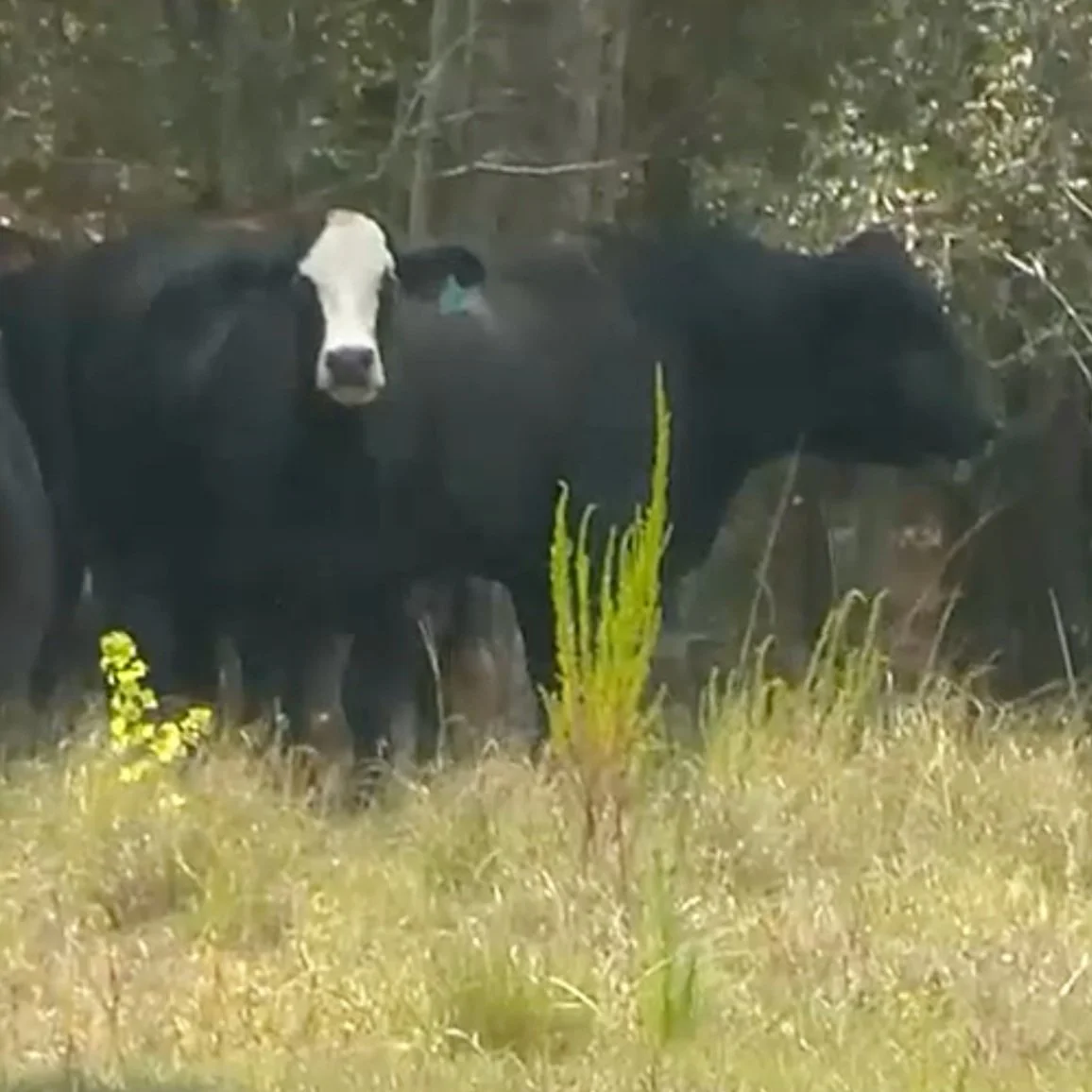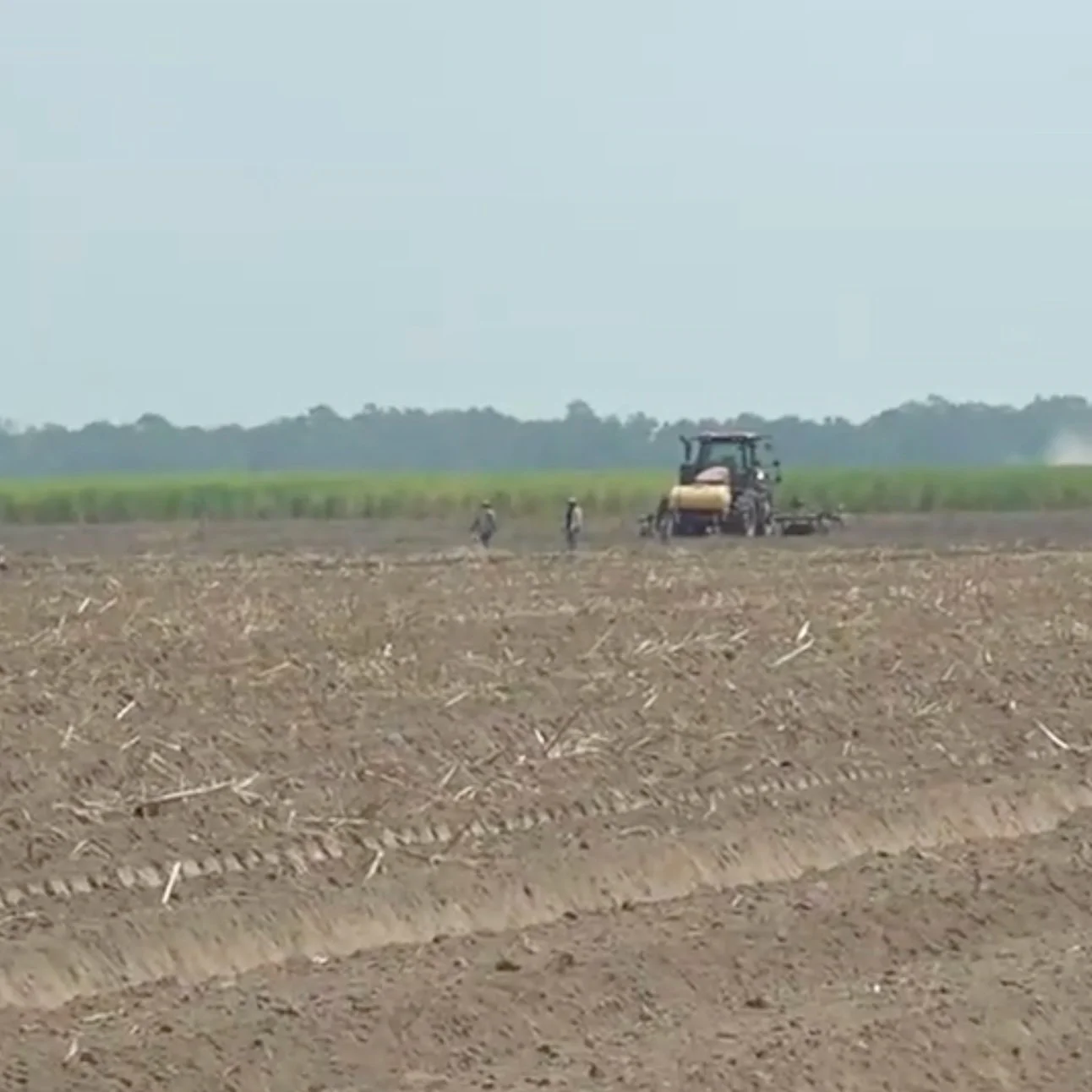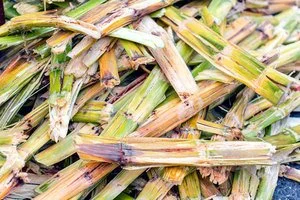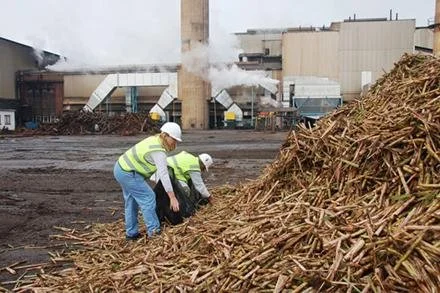Sugar Cane Farmers Rely On Wells For Irrigation To Try & Save Their Harvest
It has been a hard year of extreme heat and drought for sugar cane farmers, which has affected crops and harvests.
"To say a field of sugarcane will not be harvested because of height has hardly ever been heard of even in drought years in the back. You have a loss but the fields were harvested, it's so bad right now," says Jim Domingues.
Read More
Simon Honored With Coulon Service Award At St. James Banquet
James “Jim” Simon of New Iberia was honored as the recipient of the Kermit Coulon Sr. Outstanding Service Award at the 62nd St. James Appreciation Supper held in Vacherie at the Westbank Reception Hall July 27.
Read More
Here’s How the Heat and Drought are Affecting Crops and How it Impacts You
When you think about harvesting crops in Louisiana, you think about things like corn, sugarcane, and soybeans. And with the record-breaking summer heat, each of these crops are having a tougher time growing than in years past.
As the chairman of the Louisiana Beef Industry, John Thompson says he’s never seen his farmland as dry as it is in his 66 years. According to the Dept. of Agriculture and Forestry, the amount of money we’ve lost in the cattle industry is between $160 -- 260 million.
Read More
Sugarcane Industry Facing 'Unprecedented' Times Amid Record Heat, Drought
Chad Hanks can sum up this sugarcane growing season rather succinctly.
“Unprecedented,” Hanks said as he stood in a sugarcane field in Lafayette Parish.
Read More
Statewide Burn Ban Exempts Farmers, but the Dry Summer Still Poses a Threat
Droughts are an unusual problem in Louisiana where folks are accustomed to afternoon showers. For farmers, the drought can be harmful to crops is desperate need of water.
Stephen Simoneaux is a sugarcane farmer in Belle Rose. He says the dry weather is concerning, and even though rainfall is usually a daily occurrence in the summer time, he says the drought shouldn't necessarily mean trouble for the crop yield statewide.
Read More
USDA Announces No Actions Under Feedstock Flexibility Program
The U.S. Department of Agriculture (USDA) Commodity Credit Corporation (CCC) announced today that it does not expect to purchase and sell sugar under the Feedstock Flexibility Program for crop year 2022, which runs from Oct. 1, 2022, to Sept. 30, 2023.
Read More
Farming Fortitude: Battling Nature's Fury
Just north of Port Allen, the relentless drought and scorching temperatures are putting local farmers to the test. Heath Morris, a sugarcane and soybean farmer, is one of those determined souls engaged in a battle with Mother Nature yet again.
Read More
Big on Bagasse
It was just over two years ago when Jeanerette, Louisiana-based Delta Biofuel and Gov. John Bel Edwards announced that Iberia Parish was under consideration for the site of a first-of-its kind, $70 million renewable fuel plant utilizing bagasse, a byproduct of sugar manufacturing. for fuel pellet production. This past July, the project—which was able to overcome challenges that included inflated project costs—finally broke ground.
Read More
Sugarcane Researchers Find a Cure for Ripener Hangover
Sugarcane producers who walk the fine line between drawing down a heavy load of sugar and supporting strong biomass production recently encountered a yield challenge from their standard ripener treatment. The symptoms are delayed emergence, fewer shoots, and lighter stalks. The overall impact of the malady is a smaller ratoon crop.
Read More
Getting Familiar With Sugarcane Aphid
The sugarcane aphid, Melanaphis sacchari (Zehntner, 1897), is a tiny, invasive insect that feeds on sugarcane plants and other grasses, predominantly grain sorghum.
Read More
Sugarcane Ripener Recommendations for 2023
Chemical ripeners for sugarcane in Louisiana provide an important benefit. When properly applied, ripeners can maximize recoverable sugar and minimize cane yield (tonnage) losses.
In 2023, the following glyphosate formulation is recommended as a chemical ripener: Roundup PowerMAX 3. Roundup PowerMax 3 contains 4.8 pounds of glyphosate acid per gallon and is formulated as a potassium salt.
Read More
Simon Honored with Coulon Service Award at St. James Banquet
James “Jim” Simon of New Iberia was honored as the recipient of the Kermit Coulon Sr. Outstanding Service Award at the 62nd St. James Appreciation Supper held in Vacherie at the Westbank Reception Hall July 27.
Leonard “Lenny” Waguespack, committee chair of the St. James Parish Agricultural Tour, said Simon was an obvious choice.
Read More
World Sugar Prices Are Sweet and Sticky
U.S. sugarcane producers watching historically high world raw sugar prices can expect both the world and domestic markets will stay healthy in the long-term, LSU agricultural economist Michael Deliberto said.
That’s good news for farmers hoping to capitalize on an improved profit opportunity.
Read More
Sugar Research Station Plays Vital Role In Sustaining Louisiana's Sugar Industry
Last year, Louisiana led the nation in sugarcane production. Much of that credit goes to the variety development done at the LSU AgCenter Sugar Research Station. The station held its annual field day to highlight their latest research. LSU AgCenter correspondent Craig Gautreaux was there and has this report.
Read More
Researchers and the Sugar Industry Join Forces to Refresh the Environment
The average American consumes 17 teaspoons of sugar per day, about half from sugarcane. It takes a lot of raw material to create all that sweetness, but there is a downside – what do you do with all the leftover sugarcane processing waste?
Scientists with the Agricultural Research Service’s (ARS) Southern Regional Research Center (SRRC), in New Orleans, LA, are working with the sugar industry to improve processing methods and develop new products that will benefit the environment and increase profits.
Read More















